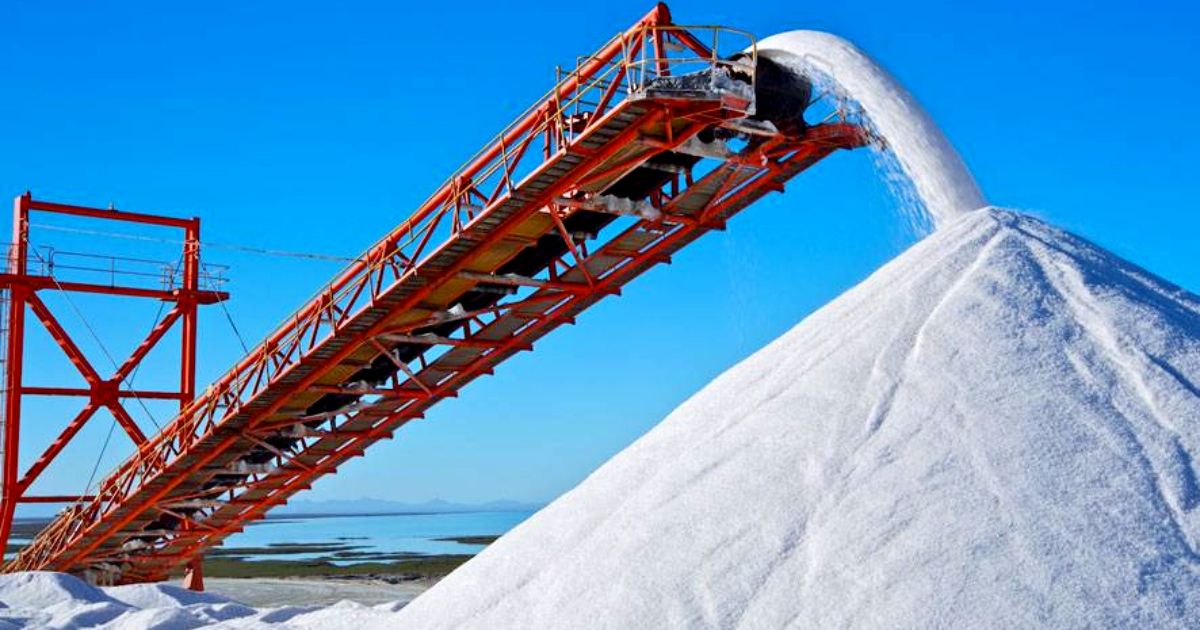
The situation of food distribution in Cuba continues to deteriorate, highlighting the deep deficiencies of the rationing system.
In August, the people of Havana have begun to receive their salt rations for the months of June and July, a significant delay that reflects the logistics and distribution crisis the island is experiencing. This delay in the delivery of basic products is not an isolated event, but rather part of a broader issue affecting the entire nation.
The Ministry of Domestic Trade of Cuba (MINCIN) reported on its social media about the distribution of the regulated family basket for the month of August, highlighting that rice, sugar, and beans continue to be distributed, although with notable delays.
However, what has drawn the most attention is the late delivery of salt, an essential product that has been scarce in state warehouses for several months.
The shortage of salt and the logistical crisis
The salt problem in Cuba is not new, but it has reached a critical point in 2024. According to Fabio José Raimundo Paz, general director of the Geominero Salinero Business Group (Geominsal), although there are "tens of thousands of tons of salt ready for distribution," the lack of transportation has prevented this product from reaching the population.
This situation has been exacerbated by adverse weather conditions that have affected production in regions like Matanzas, where salt production facilities have been repeatedly destroyed by cyclones over the past 30 years.
Raimundo Paz stated in the officialist program Mesa Redonda that logistical difficulties and resource limitations have been the main obstacles to the distribution of salt in the country.
Despite the fact that the Cuban government has repeatedly blamed the transportation crisis for the shortages, the reality is that the inefficiency in the distribution of essential goods like salt is a reflection of the deeper problems facing the Cuban economy.
Impact on daily life and complaints from the population
The scarcity of salt and other basic food items has had a devastating impact on the daily lives of Cubans. Due to the lack of salt in the warehouses, many Cubans are forced to buy this product in the stores of Micro, Small, and Medium Enterprises (Mipymes) at exorbitant prices.
A recent example is that of Inés Casal, a woman from Havana who had to pay 530 pesos for just over a pound of Goya brand imported salt in a private store.
Complaints about the lack of salt have quickly appeared on social media, where Cubans have expressed their frustration and despair over not being able to acquire such a basic product. "There isn’t even salt anymore! An island surrounded by the sea. I don't remember the last time it was sold in the 'basic basket,'" Casal lamented in his Facebook post.
This type of testimony reflects the growing discomfort among the population, who see how it is increasingly difficult to access essential products through the state rationing system.
The government's response and the protests
The Cuban government, on its part, has tried to justify the situation by citing logistical and funding problems. Betsy Díaz Velázquez, Minister of Domestic Trade, acknowledged in a report presented to the National Assembly of People's Power (ANPP) that financial difficulties have prevented the achievement of the necessary coverage and timely receipt of products.
Despite these attempts at justification, the population has begun to express their discontent in a more active manner.
In Palma Soriano, Santiago de Cuba, a group of neighbors gathered in front of a bodega to demand the distribution of the rationed food they had not yet received, months after it was expected. "No more abuse, no more lies, no more misery, we are hungry," was the cry of the protesters.
An uncertain future
The situation in Cuba remains uncertain, with a government that seems incapable of resolving the structural problems affecting food distribution on the island.
Meanwhile, Cubans continue to face a reality marked by scarcity, high prices, and uncertainty about whether they will be able to access the most basic products in the near future.
The insistence that "each municipality has to handle its own food," as claimed by the ruler Miguel Díaz-Canel, does not seem to provide a real solution to the growing difficulties faced by the population.
What do you think?
COMMENTFiled under: